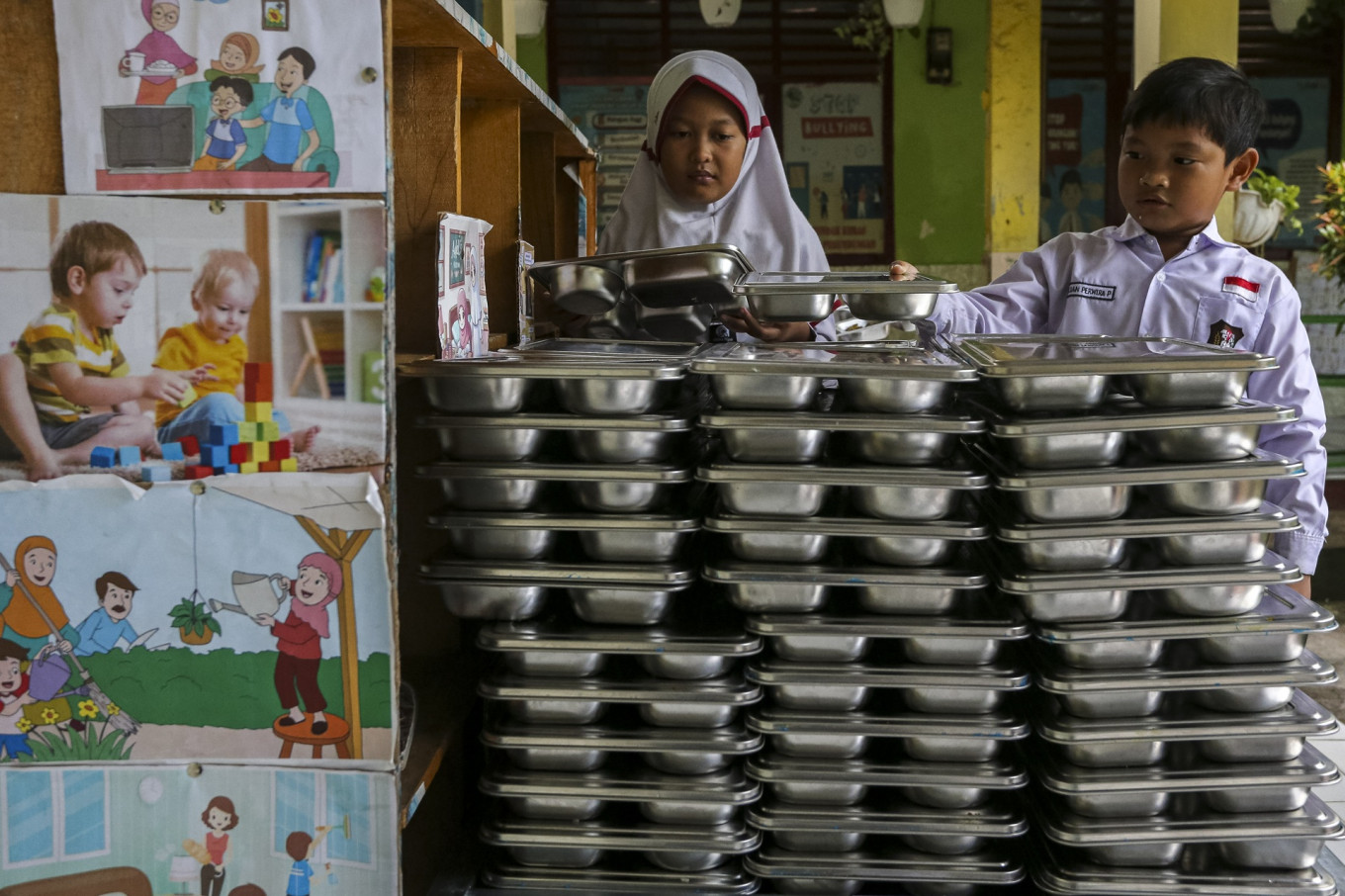Popular Reads
Top Results
Can't find what you're looking for?
View all search resultsPopular Reads
Top Results
Can't find what you're looking for?
View all search resultsPartnering for better health and nutrition in Indonesia
As Indonesia journeys toward becoming a high-income country by 2045, its investment in its youngest citizens may be its wisest strategy.
Change text size
Gift Premium Articles
to Anyone
W
hen a child grows up healthy and well-nourished, an entire nation prospers. This simple truth drives Indonesia's remarkable progress in maternal and child health.
Like planting a seed in fertile soil, investing in health and nutrition during life's earliest moments yields the richest harvest: Stronger economies, productive lives and thriving communities.
Indonesia has embraced this wisdom. Recently, the country celebrated its National Nutrition Day 2025. Indonesia’s journey offers a powerful lesson in what determined leadership and focused partnerships can accomplish.
Just a decade ago, the picture was troubling. More than one in three Indonesian children under 5 were stunted, meaning too short for their age due to poor nutrition. These children faced invisible and life-long barriers to learning and fulfilling their potential. The cost wasn't just measured in centimeters of height, but in talents untapped.
Then came 2017's turning point: Indonesia launched a National Strategy to Accelerate Stunting Prevention (StraNas Stunting). This wasn't just another government program, it was a nationwide movement.
Today, across thousands of islands, new mothers receive food assistance to boost breastmilk production. Pregnant women attend free classes on nutrition and newborn care. Preschoolers get vital early development services, including life-saving vaccines.
Like a well-orchestrated symphony, the program brought together leaders at every level, ranging from national ministries to village councils, focusing on nutrition, clean water, education, family planning and social support.
Health workers became the conductors, helping to bring children often left behind into the program, especially those who had never received a single vaccine, known as the "zero-dose" children.
Indonesia didn't walk this path alone. The country's Investing in Nutrition and Early Years program (INEY) was supported by the World Bank and the Global Financing Facility (GFF). It became the bridge connecting national vision with village-level action.
Picture this: Village leaders working hand-in-hand with health workers and volunteers, creating and delivering a program for every mother and child. Pregnant women receiving consistent care throughout pregnancy. Families making regular visits to health centers for growth monitoring, vaccines and parenting advice. This isn't just healthcare, it's community care.
When Gavi, the Vaccine Alliance joined in the second phase, it brought additional focus on reaching those "zero-dose" children. Like interlocking pieces of a puzzle, these partnerships created a complete picture of health: Fewer childhood illnesses meant better nutritional status, and better nutrition meant stronger responses to vaccines.
The results speak volumes. Between 2018 and 2023, Indonesia's childhood stunting rate plummeted from 30.8 percent to 21.5 percent, marking one of the fastest improvements anywhere in the world. The program reached over 20 million children under two and trained more than 75,000 community volunteers. The number of zero-dose children dropped dramatically by 21 percent in the 12–24-month age group and by 47 percent in older children.
Now, INEY enters its second phase (2023-2028) with renewed support: US$600 million from the World Bank, $17 million from GFF and $13 million from Gavi, complemented by Indonesia’s own resources. This isn't just financing, but rather it is fuel for Indonesia's ambitious vision of reducing stunting to just 5 percent by 2045.
The first 1,000 days of life remain the golden window for intervention, but Indonesia isn't stopping there. The country's new free nutritious meal program plans to extend this care into the school years, creating an unbroken chain of support from womb to classroom, to address child malnutrition and improve educational outcomes across the country.
As Indonesia journeys toward becoming a high-income country by 2045, its investment in its youngest citizens may be its wisest strategy. By nurturing each child's health and potential, starting first in those crucial early days and then throughout childhood, Indonesia isn't just reducing statistics. It's cultivating a generation that will stand tall in every way that matters.
With unwavering political commitment, strong partnerships and a clear vision, Indonesia shows us all what's possible when a nation decides that every child deserves to not just survive, but thrive.
---
José Manuel Barroso is chair of the board of Gavi, the Vaccine Alliance. Manuela V. Ferro is World Bank vice president for East Asia and the Pacific.
Your Opinion Matters
Share your experiences, suggestions, and any issues you've encountered on The Jakarta Post. We're here to listen.
Thank you
Thank you for sharing your thoughts. We appreciate your feedback.











